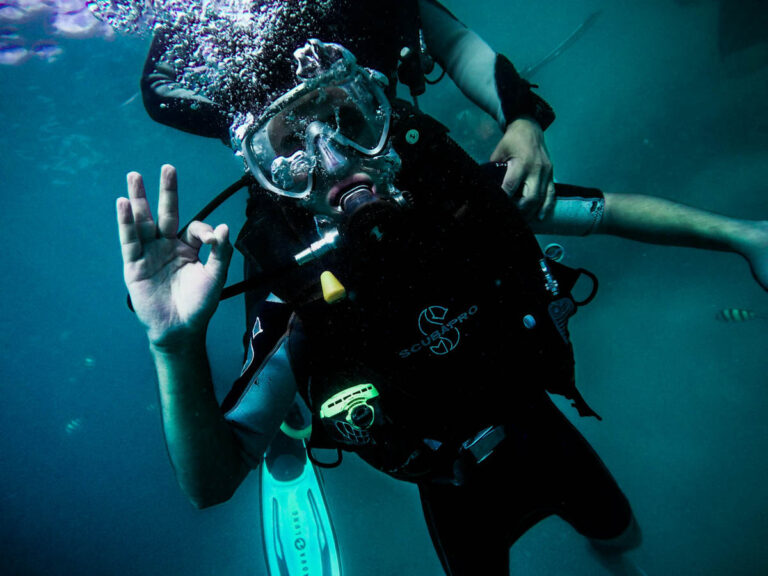A scuba instructor’s role goes far beyond teaching people how to dive; they’re equipping students with life skills that demand both intellectual and physical mastery. The process begins with academic knowledge, where students learn about safety protocols, environmental conditions, and the physics of diving. From there, instructors guide students into practical skills development, helping them gain confidence and competence in underwater environments.
Over the decades, training agencies and regulatory bodies worldwide have standardized these skills to meet international standards, ensuring divers’ safety and preparedness. This formalized approach, supported by online systems and uniform training materials, streamlines the instructor’s teaching path. But despite this framework, the psychology—or “physiology” as it is sometimes mistakenly called—of diver training is often left out, an omission with overlooked real-world consequences.
The Missing Piece: Psychological Dynamics in Diver Training
Instructors face unique psychological pressures when training students. Beyond the structured curriculum, they must contend with the human elements that can impact a diver’s ability to learn and perform. These elements include the influence of student egos, peer pressure within diving groups, employment pressure in commercial settings, and even the emotional and physical stress that learning to dive can trigger.
In many cases, the average instructor has minimal training in handling situations that fall outside of their teaching experience. When faced with a student who overestimates their readiness or a sponsor who expects expedited results, the instructor is often left to rely on their judgment and personal experience.
Challenging Scenarios: When Training Gets Complicated
Consider the scenario of an egotistical older student who isn’t quite ready for the open-water portion of the training but refuses to accept their limitations. The instructor may need to deliver the difficult news that this student requires more practice before advancing, a conversation that could be uncomfortable and even contentious. On top of this, the instructor might worry about potential backlash from management or stakeholders if the student in question is also a significant customer.
Why Isn’t Psychology a Larger Part of Instructor Training?
The scuba industry has long overlooked the psychological dimensions of diver training in favor of technical skills and safety protocols. Why is this aspect often sidelined?
Time and Cost of Comprehensive Training: Incorporating a full curriculum on psychology would require longer, more intensive courses, increasing both time and expense for the instructors themselves and for the organizations hiring them.
Broad Range of Variables: Teaching instructors to manage student psychology is challenging due to the sheer variety of personalities, learning paces, and life experiences they encounter. Customizing psychological training for every possible scenario would be complex and might seem impractical within the current training models.
Employment and Operational Costs: With added psychological training, instructors would arguably demand higher salaries, as they would be taking on a more complex role. This could affect dive centers’ profitability and operational models, especially where course cost will be higher in an already tight market.
Lack of Industry Emphasis: In the dive industry, psychological considerations have not traditionally been a focal point, overshadowed by the immediate, physical safety requirements. However, as the industry grows and divers become more diverse, addressing the psychology of diver training could be increasingly valuable.
The Future of Scuba Training: Recognizing the Human Element
The inclusion of psychological training could reshape the dive industry. Equipping instructors to better handle student attitudes, manage expectations, and foster resilience could lead to safer, more satisfying learning experiences.
Understanding that diving involves both a physical and mental commitment might also appeal to prospective divers, particularly those with fears or anxieties about the underwater environment. As this focus grows, it could elevate the standards of scuba instruction worldwide and enhance the industry’s reputation for developing not only skilled but also psychologically prepared divers.





